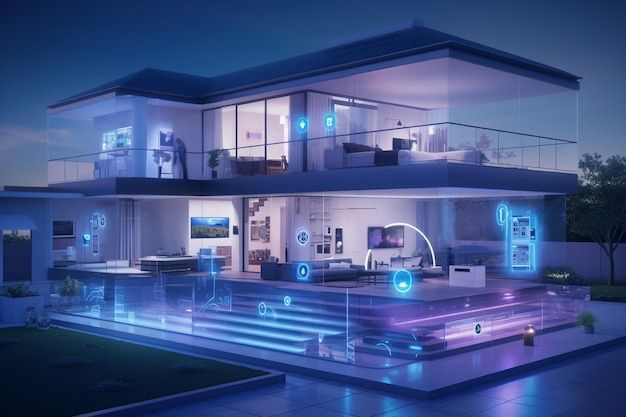Why Energy-Efficient AV Systems Matter in Nigeria
Nigeria’s energy landscape is complex: unstable electricity supply, high generator fuel costs, and growing environmental awareness. As businesses and institutions in Nigeria expand, there’s a clear need for smarter energy use, especially with technology-heavy setups.
Enter smart AV systems: solutions that not only enhance communication and productivity but also help cut energy consumption and reduce operational costs.
In this guide, we’ll explore the key ways AV integration can save energy, the components to consider, and how Nigerian corporates, institutions, and homeowners can benefit from green audiovisual systems.
1. Automated Power Management: Never Waste Energy Again
With traditional AV setups, devices are often left running after meetings or office hours, leading to unnecessary energy drain.
Modern AV systems integrated with smart control platforms like Crestron, Extron, and QSC Q-SYS can:
- Automatically power down displays, speakers, and projectors after use
- Set sleep timers for inactive devices
- Sync with occupancy sensors to shut off unused rooms
This automation ensures you’re only using power when it’s needed—a game changer in Nigeria, where every kilowatt counts.
2. Intelligent Lighting Integration: Reduce Office Energy Bills
Lighting is a major contributor to energy bills—especially in office spaces and auditoriums.
Smart AV systems can integrate with intelligent lighting controls to:
- Dim or turn off lights during presentations
- Use daylight harvesting (adjust lighting based on natural sunlight)
- Customize brightness based on time of day and room activity
For example, motion-sensor-activated lights in conference rooms save energy by automatically turning off when no one is present.
3. Centralized Control Means Centralized Savings
Rather than managing multiple remotes or switches, smart AV systems allow you to control:
- Audio zones
- Video sources
- Climate (AC)
- Lighting—all from a single interface (tablet, touchpanel, or mobile app).
This control not only improves convenience but also reduces the likelihood of leaving systems on unnecessarily.
Example: A university lecture hall in Lagos uses a central system to schedule AV equipment shutdowns every evening—saving 20% in power consumption monthly.
4. Integrating HVAC and AV Systems for Climate Efficiency
Audio-visual systems don’t work in isolation—they can be integrated with HVAC (Heating, Ventilation, Air Conditioning) systems.
Here’s how it helps:
- Meeting room booked? AC activates 10 minutes before.
- Room unoccupied? AC powers down automatically.
- Windows open? The system alerts the admin to shut the AC off to save energy.
Considering Nigeria’s tropical climate and high AC usage, this smart pairing significantly reduces utility costs.
5. Support Your Corporate Sustainability Goals (CSR & ESG)
For Nigerian companies aiming to align with Corporate Social Responsibility (CSR) or Environmental, Social, and Governance (ESG) standards, smart AV helps you:
- Reduce your carbon footprint
- Improve your sustainability reports
- Meet energy compliance expectations from global partners
Modern clients and investors are watching—show them your brand walks the talk.
6. Smart Homes: Bringing Energy-Efficient AV to Everyday Nigerians
Energy-saving AV isn’t just for corporates. Homeowners in Lagos, Abuja, and Port Harcourt are adopting:
- Smart TVs with eco modes
- Multi-room audio that shuts off by room occupancy
- AV + solar integration
With fuel prices and PHCN tariffs rising, these setups aren’t a luxury—they’re a financial strategy.
Key Components of an Energy-Efficient AV Setup in Nigeria
| Component | Energy-Efficient Option | Benefit |
|---|---|---|
| Displays | LED / OLED with standby modes | Up to 40% less energy |
| Speakers | Passive or Class-D amps | Lower heat, less power |
| Control Systems | Crestron/Extron | Automated shutoff, reporting |
| Lighting | Smart LED + occupancy sensors | Cut lighting costs by 60% |
| HVAC Integration | AC + AV coordination | Optimized cooling cycles |
Why Nigerian Businesses Should Act Now
The costs of inaction are rising:
- Diesel prices have doubled
- National grid outages are frequent
- Customers and investors demand sustainability
By integrating smart AV systems designed for energy efficiency, you not only cut operational costs but also future-proof your infrastructure.
 English
English 

